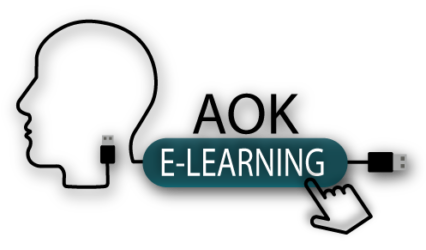John Kirk, Director
AOK Basic Skills Project (a personal retirement project, not an organization)
Portland, Maine
E: kirkjohnb5@gmail.com
W: www.aokbasicskills.gratis
May 15, 2021
https://sustainabledevelopment.un.org/contact/
United Nations Headquarters
Sustainable Development Goals Office
405 East 42nd Street
New York, NY, 10017, USA.
RE: A call for free, multilingual, culturally sensitive, “Framework” ESOL Textbook Series from the primary to the university and adult education levels
Hello UN Sustainable Development Goal 4:
With present day advances in computer technology such as the freely available Google translator that can translate over 100 languages as well as provide pronunciation for words and sentences, the educational possibilities for professionally written, inexpensive ESOL textbooks for the different UN languages has dramatically increased.
This article will briefly examine possibilities of “framework ESOL textbooks” for helping developing and third world countries. If found to be practical, “framework textbooks” could significantly help a large number of people, as 1.5 billion people are studying English in the world today. (British Council, 2019)
Long Term Goal
The long-term goal of this article is to connect “framework textbooks” to an international, educational beachhead website that would provide practice for students of different languages in reading, writing, listening and speaking of their native languages, as well as practice with ESOL.
To learn more about this type of website, please read: “Letter: UN – International Beachhead Website” in the section “Pre-K – 12 & Adult Ed Workshops” on this website.
“What is a “Framework Textbook Series?” and “How can it help?”
An “ESOL framework textbook” is one that is professionally written. It provides a blue print for teaching the basic skills of reading, writing, listening, speaking, grammar and vocabulary to speakers of other languages. It does this by using same curriculum and basic skill exercises in all the different languages in which it is translated.
However, it allows a ministry of education from any country could input folk tales and life skills from its own culture to serve as background to the exercises by replacing the folk tales and life skills that freely come with the text from the UN.
The Common European Framework of Reference for Languages: Learning, Teaching, Assessment (CEFR) – A framework text series could be based on the CEFR curriculum. The CEFR is an internationally recognized language curriculum that’s easy to understand for the students.
Imbalance in English Teaching Materials and Progress
With the increasing presence of relatively inexpensive computers, smart phones, good textbooks, moderately sized classes and quality language instruction in developed countries, there is a growing disparity in ESL language learning between the “have” and the “have not” countries.
Also, the teaching of autonomous language learning through the European Language Portfolio (ELP) in public schools in Europe and Linguafolio in N. America is making its mark.
Who Might Write the Framework Texts?
An organization such as UNESCO or the World Bank could take steps to manage the writing of “framework ESOL textbooks” for large classes and distribute them to UN countries that express interest. Text distribution systems in the underdeveloped parts of the world have been developing, so there would be no need to start from the beginning in some locations.
What Content Might the Texts Include?
The Ministries of Education of participating countries would decide how much of the framework textbook material they wanted to adopt or substitute. They would be given instructions on how to change the textbooks material for use in their countries.
Possibly, the original content for illustrating the language exercises might only range from international folk tales to basic life skills such as recipes for healthy diets and food purchasing. This would make the issue of rewriting the texts for the interested countries less political, instead of perhaps dealing with the inclusion of history and geography.
With the open nature of “framework texts”, there would be no limit to what the ministries of education of the participating countries might decide for background content to accompany the basic skill exercises. For this reason, the texts would have more popularity due to the local individualization.
Up-to-Date ESL Textbook Strategies and “Differentiation”
The texts could be based on the ELP/Linguafolio autonomous language learning approach and contain levels beginner through advanced intermediate, or A1-B2. Each level could comprise two texts. For example, Level A1 would have two texts.
It isn’t uncommon for a language class to include slightly different levels of students. Using differentiation, each text could serve three sublevels of students simultaneously. Pearson: “Differentiation is about understanding the needs and abilities of your class and providing alternatives within multiple, but manageable constraints.”
The texts could also have their own Internet site to provide the students with supplementary academic support with explanation and answers for the basic skill exercises. The site could also direct the students to free ESL websites for those who needed more practice with a particular skill.
Conclusion
On our physically endangered planet, most agree that education is one of the answers to better health and equality for all. With today’s computer capacity to assist in the writing of English ESOL textbooks in multilanguages and the ELP/Linguafolio know-how to develop autonomous language learning students, the UN could give developing and third world countries a hand-up by providing them with the free blue print for up-to-date ESL textbooks. In so doing, it would enhance UN World Goal No. 4 – Quality Education.
Sincerely,
John Kirk, Director AOK
E: kirkjohnb5@gmail.com
About the writer:
John Kirk is a retired ESOL teacher over 65 and lived in Quito, Ecuador for over 10 years. To learn more about the details of his program please refer to his website www.aokbasicskills.gratis where you can also read about the 20 life skill workshops that he’s offering. The theme of the presentations is “How you can use the Internet to improve your knowledge of important educational and diet related skills without cost”. John holds the following degrees: M.S. Ed in Reading Education K-12, 1976 & MATESL, 1992.

